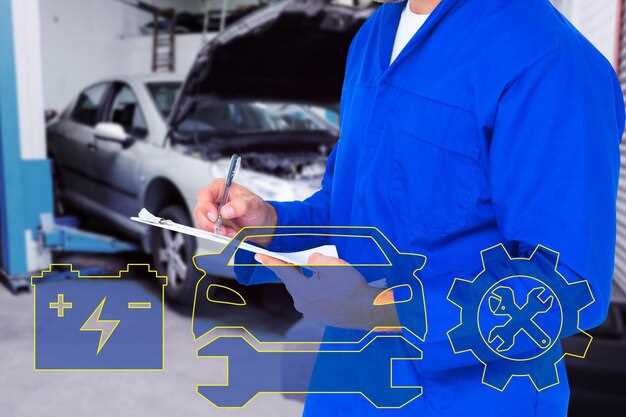
Regular vehicle maintenance is an essential practice that significantly contributes to the longevity and performance of your car. By investing time and effort into preventive care, vehicle owners can not only enhance their car’s efficiency but also extend its lifespan. This proactive approach ensures that minor issues are identified and addressed before they evolve into costly repairs.
One of the key benefits of routine maintenance is the prevention of unexpected breakdowns. Regular checks and services, such as oil changes, tire rotations, and brake inspections, help to keep the vehicle in optimal condition. This preventive care minimizes the risk of facing major mechanical failures, which could otherwise compromise both safety and convenience on the road.
Additionally, consistently maintained vehicles tend to retain higher resale value. Prospective buyers are often willing to pay a premium for a car with a well-documented maintenance history, indicating reliability and care. In this way, routine maintenance not only enhances immediate performance but also presents long-term financial benefits for the owner when it comes time to sell or trade in the vehicle.
Advantages of Regular Vehicle Maintenance
Regular vehicle maintenance is a critical aspect of vehicle ownership that significantly enhances the reliability and longevity of your automobile. One of the key advantages is the implementation of preventive measures that address potential issues before they escalate into major problems. This proactive approach helps in avoiding costly repairs and ensures that your vehicle operates at optimal performance.
Routine inspections and maintenance tasks, such as oil changes, brake checks, and tire rotations, contribute to the overall health of your vehicle. By adhering to a regular maintenance schedule, you enhance the reliability of crucial components, reducing the chances of unexpected breakdowns. Additionally, reliable vehicle performance translates into safer driving experiences, giving you peace of mind on the road.
Moreover, well-maintained vehicles often exhibit better fuel efficiency. As all parts work harmoniously, the engine operates smoothly, leading to reduced fuel consumption. This not only saves money but also supports environmental sustainability by lowering emissions.
Investing in regular vehicle maintenance also helps preserve resale value. A vehicle that has received consistent care and documentation of maintenance history is likely to attract potential buyers and command a higher price compared to neglected counterparts. Ultimately, the advantages of regular maintenance extend beyond immediate benefits, contributing to the vehicle’s overall lifespan and your satisfaction as an owner.
Enhancing Vehicle Longevity Through Scheduled Servicing
Regular scheduled servicing is vital for maintaining the longevity of any vehicle. Engaging in preventive care can significantly reduce the risk of unexpected breakdowns and costly repairs. By adhering to a scheduling system, vehicle owners can ensure their cars operate at optimal performance levels.
Key benefits of scheduled servicing include:
- Early Detection: Routine checks help to identify potential issues before they escalate into major problems. This proactive approach minimizes repair costs and extends the vehicle’s lifespan.
- Improved Performance: Regular maintenance, such as oil changes and filter replacements, ensures that the vehicle runs efficiently, enhancing fuel economy and overall performance.
- Safety Assurance: Frequent inspections of brakes, tires, and other critical components play a crucial role in maintaining safety standards, protecting the driver and passengers from accidents.
- Value Retention: A well-maintained vehicle retains its market value over time. Prospective buyers often pay a premium for cars with documented service records, reflecting their reliability.
Implementing a preventive care schedule allows vehicle owners to enjoy their cars for years without facing significant issues. Regular maintenance routines should include:
- Oil and filter changes every 3,000 to 5,000 miles.
- Tire rotations and alignments to promote even wear.
- Brake inspections to ensure optimal stopping power.
- Fluid level checks for coolant, transmission fluid, and brake fluid.
- Battery health assessments to avoid unexpected failures.
In conclusion, embracing a schedule for regular servicing is essential for enhancing vehicle longevity. Through preventive care, vehicle owners can ensure their investments are protected and that they enjoy safe, reliable transportation for years to come.
Ensuring Reliability with Routine Inspections and Repairs

Routine inspections and repairs play a crucial role in the reliability of any vehicle. By adhering to a schedule of preventive maintenance, owners can identify potential issues before they escalate into significant problems. This proactive approach minimizes the risk of unexpected breakdowns, ensuring that the vehicle operates smoothly and efficiently.
Regular inspections allow mechanics to examine vital components such as brakes, tires, and engine performance. These assessments help detect wear and tear that may not be immediately noticeable to the driver. Addressing these issues early through timely repairs not only enhances the reliability of the vehicle but also contributes to safer driving conditions.
Moreover, routine maintenance fosters a better understanding of the vehicle’s overall health. When drivers are aware of their vehicle’s condition, they can make informed decisions regarding repairs and upgrades. This knowledge extends the lifespan of the vehicle, thereby maximizing the return on investment.
Additionally, a well-maintained vehicle typically enjoys better fuel efficiency and lower emission levels. This not only benefits the owner financially but also contributes positively to the environment. Ultimately, implementing a consistent schedule of routine inspections and repairs is essential for ensuring that a vehicle remains reliable and performs optimally over time.
Implementing Preventive Care to Minimize Future Costs

Regular vehicle maintenance is essential for ensuring the reliability and longevity of your automobile. By implementing preventive care measures, you can significantly minimize future repair costs. This proactive approach not only enhances the performance of your vehicle but also helps identify potential issues before they escalate into major problems.
One of the most effective ways to practice preventive care is through routine inspections and servicing. This includes checking fluid levels, brakes, tires, and the engine. By addressing these areas regularly, you can avoid unexpected breakdowns and expensive repairs. Maintaining proper fluid levels, for instance, can prevent engine overheating and wear, ultimately saving you from costly replacements.
In addition to mechanical inspections, following the manufacturer’s recommended maintenance schedule is crucial. These guidelines are designed to optimize your vehicle’s reliability and efficiency. Adhering to them helps ensure that all necessary components are serviced at appropriate intervals, which in turn reduces the likelihood of sudden failures that could lead to significant expenses.
Furthermore, investing in preventive care can increase your vehicle’s resale value. A well-maintained vehicle is more attractive to potential buyers and can command a higher price. This aspect not only benefits you during ownership but also during the eventual sale or trade-in of your vehicle.
Overall, the implementation of preventive care practices fosters a reliable driving experience while significantly reducing future monetary burdens. By committing to regular maintenance, you safeguard your investment and enhance the longevity of your vehicle.



